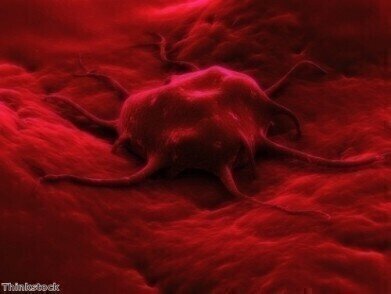-
 Immune cell and breast cancer link identified
Immune cell and breast cancer link identified
News
Immune cell and breast cancer link identified
Sep 19 2013
A link between immune cell behaviour and breast cancer has been identified, which experts say could have an effect on the way that therapies are developed in the future.
Experts at the University of Adelaide focused on immune cells known as macrophages in the breast, and how the role of these cells changes due to fluctuations in hormones during different times of the month.
The results were published online ahead of print in the journal Biology of Reproduction, and reveal that although the immune cells have a role to play in the normal function of the breast, at certain stages in the menstrual cycle they may help to make the breast more susceptible to cancer.
Wendy Ingman, the Hospital Research Foundation Associate Professor of Breast Cancer Research and National Breast Cancer Foundation Early Career Fellow, said the cells should be protecting the body from cancer, but at certain times of the month macrophages may be allowing cancerous cells to escape immune system detection.
"It's sort of a Jekyll and Hyde scenario – we need the macrophages to do their job so that the breast can function normally, but at the same time they're giving cancerous cells the chance to survive," added Professor Ingman, who is head of the Breast Biology & Cancer Unit with the University of Adelaide's School of Medicine, the Robinson Institute and the Queen Elizabeth Hospital.
She added: "We think there is a window of risk that opens up around the time when women have their period. This is when levels of the hormone progesterone drop, and this affects how the breast functions. At this time, immune defenses in the breast tissue are down and women could be more susceptible to the initiating factors that lead to breast cancer."
According to the expert, specialists have known "for some time" about the link between the number of years of menstrual cycling and breast cancer risk, but are only now starting to understand the cell-to-cell interactions that are impacting on the risk.
By better understanding the biological factors that underpin breast cancer susceptibility, it may be possible to one day close the "windows of risk", and reduce women's lifetime risk of breast cancer, Professor Ingman concluded.
Digital Edition
Lab Asia Dec 2025
December 2025
Chromatography Articles- Cutting-edge sample preparation tools help laboratories to stay ahead of the curveMass Spectrometry & Spectroscopy Articles- Unlocking the complexity of metabolomics: Pushi...
View all digital editions
Events
Jan 21 2026 Tokyo, Japan
Jan 28 2026 Tokyo, Japan
Jan 29 2026 New Delhi, India
Feb 07 2026 Boston, MA, USA
Asia Pharma Expo/Asia Lab Expo
Feb 12 2026 Dhaka, Bangladesh


















